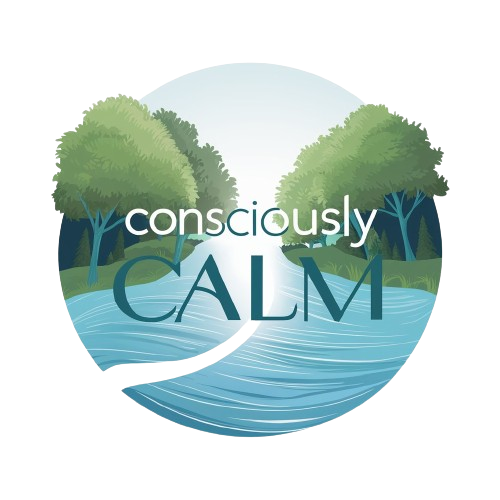7 Steps to Manage Stress with Relaxation Techniques

Managing stress is crucial for maintaining a healthy and balanced life. Many people experience overwhelming stress that affects their well-being. Incorporating relaxation techniques can help reduce stress and improve overall quality of life. Techniques such as deep breathing, mindfulness meditation, and physical activities offer effective ways to manage stress. Embrace these relaxation techniques to find calm and inner peace. Start your journey towards a stress-free life today.
Step 1: Identify Your Stressors
Recognize Common Stress Triggers
Work-Related Stress
Work can often become a significant source of stress. Deadlines, demanding bosses, and heavy workloads can overwhelm anyone. A stressful job can make you feel like you're constantly under pressure. Recognizing these triggers helps in managing them effectively.
Personal Life Stress
Personal life can also contribute to stress. Family responsibilities, financial issues, and personal relationships can create emotional strain. Emotional stress can manifest in various ways, affecting your overall well-being. Identifying these stressors is crucial for finding solutions.
Self-Reflection Techniques
Journaling
Journaling offers a powerful way to reflect on your stressors. Writing down your thoughts and feelings can provide clarity. This practice can help you understand what causes your stress and how it affects you. Regular journaling can offer insights into patterns and triggers.
Mind Mapping
Mind mapping serves as another effective self-reflection technique. Creating a visual representation of your thoughts can help organize your stressors. This method allows you to see connections between different stress factors. Mind mapping can simplify complex issues, making them easier to address.
I battled with many factors of stress. Stress can come from various sources, both work-related and personal. Identifying these stressors is the first step toward managing them effectively.
Step 2: Practice Deep Breathing

Benefits of Deep Breathing
Physical Benefits
Deep breathing provides numerous physical benefits. This technique encourages full oxygen exchange, which increases the intake of fresh oxygen and the release of carbon dioxide. This process slows the heartbeat and stabilizes blood pressure. Engaging in deep abdominal breathing helps to relax the diaphragm muscle, reducing tension in the shoulders, neck, and chest muscles. Regular practice can enhance lung capacity and improve overall respiratory function.
Mental Benefits
Deep breathing also offers significant mental benefits. This practice helps to disengage from distracting thoughts and sensations, promoting a sense of calm and focus. By activating the parasympathetic nervous system, deep breathing reduces stress and anxiety levels. This method can improve concentration and mental clarity. Consistent practice fosters a state of relaxation, aiding in better sleep and emotional stability.
Techniques for Deep Breathing
Diaphragmatic Breathing
Diaphragmatic breathing, also known as belly breathing, involves using the diaphragm muscle to breathe deeply. Follow these steps to practice diaphragmatic breathing:
Sit or lie down in a comfortable position.
Place one hand on the chest and the other on the abdomen.
Inhale deeply through the nose, allowing the abdomen to rise while keeping the chest still.
Exhale slowly through the mouth, letting the abdomen fall.
Repeat this process for several minutes, focusing on the rise and fall of the abdomen.
This technique promotes relaxation and reduces muscle tension.
4-7-8 Breathing
The 4-7-8 breathing technique is another effective method for stress reduction. Follow these steps to practice 4-7-8 breathing:
Sit or lie down in a comfortable position.
Inhale quietly through the nose for a count of four.
Hold the breath for a count of seven.
Exhale completely through the mouth for a count of eight.
Repeat this cycle three to four times.
This method helps to calm the mind and body, making it easier to manage stress and anxiety.
Research Findings: Studies have shown that deep breathing techniques, such as diaphragmatic and 4-7-8 breathing, effectively reduce stress by engaging the parasympathetic nervous system and promoting full oxygen exchange. (Harvard Health Publishing, Mayo Clinic)
Incorporating these deep breathing techniques into daily life can significantly improve both physical and mental well-being. Start practicing today to experience the calming effects and better manage stress.
Step 3: Engage in Physical Activity
Types of Physical Activities
Aerobic Exercises
Aerobic exercises, such as running, swimming, and cycling, can significantly reduce stress. These activities increase heart rate and improve cardiovascular health. Regular aerobic exercise releases endorphins, which act as natural mood enhancers. Engaging in these exercises provides a healthy distraction from daily worries.
Yoga and Stretching
Yoga and stretching offer another effective way to manage stress. These practices combine physical movement with breath control and meditation. Yoga improves flexibility, strength, and balance. Stretching helps release muscle tension and promotes relaxation. Both activities encourage mindfulness, helping you stay present and calm.
Creating a Routine
Setting Realistic Goals
Setting realistic goals is crucial for maintaining a consistent exercise routine. Start with small, achievable targets. Gradually increase the intensity and duration of your workouts. Clear and attainable goals keep you motivated and prevent burnout. Celebrate each milestone to maintain enthusiasm.
Staying Consistent
Consistency is key to reaping the benefits of physical activity. Schedule regular workout sessions into your daily routine. Treat exercise as a non-negotiable part of your day. Find activities you enjoy to make it easier to stick with your routine. Consistent practice leads to long-term stress reduction and improved well-being.
Research Findings: Studies have shown that regular physical activity reduces stress by releasing endorphins and providing a healthy distraction from worries. (Harvard Health Publishing, Mayo Clinic)
Incorporating physical activity into your daily life can significantly improve your mental and physical health. Start today and experience the positive effects on your stress levels and overall well-being.
Step 4: Practice Mindfulness and Meditation

Understanding Mindfulness
Benefits of Mindfulness
Mindfulness helps you stay present in the moment. This practice reduces stress and anxiety. Mindfulness improves overall well-being by promoting a sense of calm. Studies show that mindfulness meditation decreases self-reported stress. College students benefit greatly from this technique. Mindfulness training enhances self-compassion and focus.
Mindfulness Exercises
Simple exercises can help you practice mindfulness. Start with mindful breathing. Focus on each breath as you inhale and exhale. Pay attention to how your body feels. Another exercise involves mindful eating. Savor each bite and notice the flavors and textures. Walking meditation also offers benefits. Walk slowly and pay attention to each step. Feel the ground beneath your feet and observe your surroundings.
Meditation Techniques
Guided Meditation
Guided meditation provides a structured way to relax. An instructor or recording leads you through the process. This method often includes calming music or nature sounds. Follow the instructions to focus your mind and release tension. Guided meditation helps beginners get started. Many apps offer guided sessions for convenience.
Transcendental Meditation
Transcendental Meditation (TM) involves repeating a mantra. Sit comfortably and close your eyes. Silently repeat a chosen word or phrase. This practice helps quiet the mind and reduce stress. TM sessions usually last 20 minutes. Practicing twice daily yields the best results. TM promotes deep relaxation and mental clarity.
Research Findings: Techniques like mindfulness and meditation helped reduce stress levels by staying focused on the present moment. (JMIR mHealth and uHealth, BMC Medical Education)
Incorporating mindfulness and meditation into your daily routine can transform your life. These practices offer powerful tools to manage stress and enhance well-being. Start today and experience the benefits firsthand.
Step 5: Establish a Healthy Sleep Routine
Importance of Sleep for Stress Management
Physical Health Benefits
Quality sleep plays a vital role in maintaining physical health. A good night's sleep helps the body repair and rejuvenate. Adequate sleep boosts the immune system, making it easier to fight off illnesses. Proper rest reduces the risk of chronic conditions like heart disease and diabetes. Consistent sleep patterns improve energy levels and physical performance.
Mental Health Benefits
Sleep significantly impacts mental health. Quality sleep enhances mood and emotional stability. Proper rest improves cognitive functions like memory and concentration. Adequate sleep reduces stress and anxiety levels. Consistent sleep patterns promote overall mental well-being.
Scientific Research Findings: Studies have shown that improved sleep quality can reduce stress and enhance mindfulness. The Calm app has proven effective in helping college students achieve better sleep and reduced stress levels (J Epidemiol Glob Health).
Tips for Better Sleep
Creating a Sleep-Friendly Environment
A conducive sleep environment promotes better rest. Keep the bedroom cool, dark, and quiet. Use blackout curtains to block out light. Invest in a comfortable mattress and pillows. Remove electronic devices from the bedroom to minimize distractions. Consider using a white noise machine to drown out disruptive sounds.
Developing a Bedtime Routine
Establishing a bedtime routine signals the body that it's time to wind down. Start with relaxing activities like reading or taking a warm bath. Avoid caffeine and heavy meals before bedtime. Set a consistent sleep schedule by going to bed and waking up at the same time every day. Practice deep breathing or meditation to calm the mind before sleep.
Scientific Research Findings: Mindfulness meditation, delivered through apps like Calm, has shown sustained effects in reducing stress and improving sleep quality. This practice helps individuals become more aware of their body's responses to stress, promoting relaxation and better sleep (JMIR mHealth and uHealth).
Incorporating these tips into your daily routine can lead to significant improvements in sleep quality. Better sleep will enhance both physical and mental health, making it easier to manage stress. Start today and experience the benefits of a healthy sleep routine.
Step 6: Connect with Others
Social Support Systems
Family and Friends
Family and friends provide essential support during stressful times. Spending time with loved ones can lift your spirits and offer a sense of belonging. Engaging in conversations with family members or friends can help you feel understood and less isolated. Sharing your feelings and experiences with those who care about you can create a strong emotional bond. This connection can act as a buffer against stress.
Support Groups
Support groups offer a safe space to share your experiences with others facing similar challenges. Joining a support group can help you realize that you are not alone in your struggles. These groups provide emotional support and practical advice. Many people find comfort in knowing that others understand their situation. Participating in a support group can enhance your coping skills and reduce feelings of isolation.
Expert Testimony:
"Future studies could incorporate social support with an app and examine the effects of such an addition on adherence." - Research Team, Mindfulness Meditation and Stress Management
Effective Communication
Active Listening
Active listening involves fully focusing on the speaker and understanding their message. This practice helps build trust and strengthens relationships. To practice active listening, maintain eye contact and nod to show understanding. Avoid interrupting and wait for the speaker to finish before responding. Reflect back what you heard to confirm understanding. Active listening can make others feel valued and respected.
Expressing Feelings
Expressing your feelings openly and honestly can improve your emotional well-being. Use "I" statements to communicate your emotions without blaming others. For example, say "I feel stressed when..." instead of "You make me stressed." This approach encourages constructive conversations and reduces misunderstandings. Sharing your feelings can help you process emotions and find solutions to problems.
Expert Testimony:
"Our findings demonstrate significant between-group differences on all main outcomes variables including perceived stress, all five factors of mindfulness, and self-compassion postintervention." - Research Team, Mindfulness Meditation and Stress Management
Connecting with others through social support systems and effective communication can significantly reduce stress. Building strong relationships with family, friends, and support groups provides emotional stability. Practicing active listening and expressing feelings fosters understanding and empathy. Start connecting with others today to enhance your well-being and manage stress more effectively.
Step 7: Incorporate Relaxation Techniques into Daily Life
Scheduling Relaxation Time
Daily Relaxation Practices
Incorporate relaxation techniques into your daily routine to manage stress effectively. Start each day with a few minutes of deep breathing. Practice mindfulness during daily activities like eating or walking. Use guided imagery to visualize calming scenes before bed. These simple practices can help you stay calm and focused throughout the day.
Weekly Relaxation Activities
Set aside time each week for more extended relaxation activities. Attend a yoga class to combine physical movement with breath control. Engage in tai chi to promote relaxation through gentle movements. Dedicate time to hobbies that bring joy and peace, such as painting or gardening. Consistent weekly practices can significantly reduce stress levels.
Combining Techniques for Maximum Benefit
Integrating Multiple Techniques
Experiment with different relaxation techniques to find what works best for you. Combine deep breathing with mindfulness meditation for a powerful stress-relief session. Use body scans to release tension before practicing yoga. Mix and match techniques to create a personalized relaxation routine. The more you practice, the greater the benefits.
Personalizing Your Approach
Customize your relaxation techniques to fit your lifestyle. Choose methods that resonate with you and make you feel at ease. Adjust the duration and frequency of your practices based on your needs. Personalizing your approach ensures that relaxation becomes a natural part of your daily life.
Personal Experience:
"I recently attended a Stress Awareness session with The Stress Management Society. The session was very engaging and allowed the group to explore what stress meant to each of us. We were shown great stress-reducing techniques which I use, and it has dramatically changed the way I approach my day-to-day routine." - Anonymous Participant
Incorporating relaxation techniques into your daily life can transform your stress management. Start small and gradually build a routine that works for you. Embrace these practices to enjoy a calmer, more balanced life.
Managing stress is essential for a healthy and balanced life. Relaxation techniques can help you achieve this balance. Techniques like deep breathing, mindfulness meditation, and physical activities offer effective ways to reduce stress. Start incorporating these practices into your daily routine.
Testimonial:
"The skills and practices learned through relaxation and guided imagery became a keystone of a healthy lifestyle, playing a significant role in alleviating stress and anxiety." - John, Susan, and Emma
Try different relaxation techniques to find what works best for you. Consistent practice will lead to significant improvements in your well-being. Embrace these techniques and enjoy a calmer, more peaceful life.

